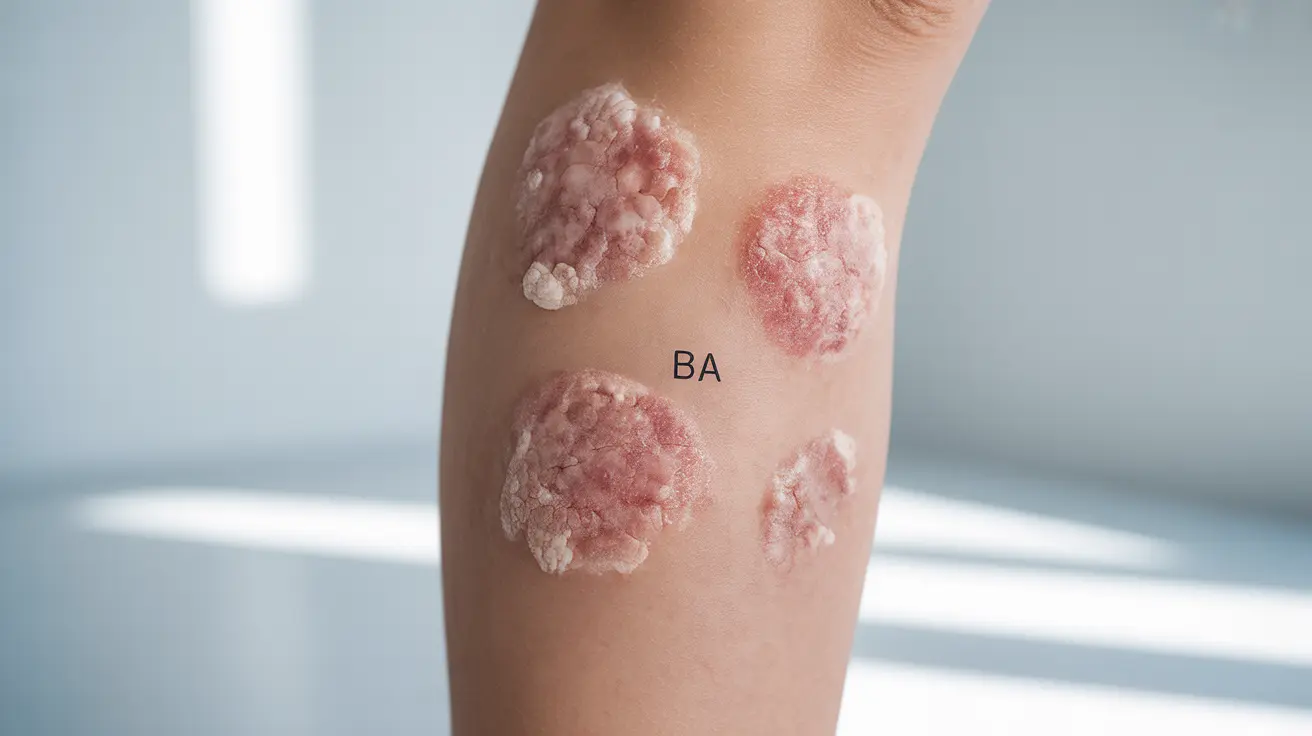If you or someone you know has recently been diagnosed with psoriasis, you might be wondering about its transmission and whether it can spread from person to person. The simple answer is no - psoriasis is not contagious. However, understanding the true nature of this chronic skin condition is crucial for both those affected and their loved ones.
Psoriasis is an autoimmune condition that affects approximately 7.5 million Americans, causing the rapid buildup of skin cells that results in thick, scaly patches. While its visible symptoms can sometimes cause social anxiety or misconceptions, it's important to know that you cannot "catch" psoriasis through physical contact.
What Really Causes Psoriasis?
Unlike contagious skin conditions caused by bacteria or viruses, psoriasis develops due to internal factors within the body. The condition occurs when your immune system mistakenly attacks healthy skin cells, triggering an accelerated skin cell production process. This results in the characteristic red, scaly patches that define psoriasis.
Key factors that contribute to psoriasis development include:
- Genetic predisposition
- Immune system dysfunction
- Environmental triggers
- Stress and lifestyle factors
The Role of Genetics in Psoriasis
While psoriasis isn't contagious, it does have a strong genetic component. Research shows that if one parent has psoriasis, their child has approximately a 25% chance of developing the condition. If both parents have psoriasis, this risk increases significantly.
However, having a genetic predisposition doesn't guarantee you'll develop psoriasis. Environmental factors and triggers often play a crucial role in whether the condition manifests.
Understanding Psoriasis Spread and Triggers
Although psoriasis cannot spread from person to person, existing patches can worsen or new patches can appear on different areas of your body. This process is known as the Koebner phenomenon, where skin trauma or irritation can trigger new psoriasis lesions.
Common triggers that may cause psoriasis to flare or spread include:
- Skin injuries or cuts
- Severe stress
- Certain medications
- Infections
- Weather changes
- Alcohol consumption
- Smoking
Managing and Preventing Flare-ups
While there's no cure for psoriasis, various management strategies can help control symptoms and prevent flare-ups. A comprehensive approach typically includes:
- Regular use of prescribed medications
- Proper skin moisturization
- Stress management techniques
- Healthy lifestyle choices
- Trigger avoidance
- Regular medical check-ups
Frequently Asked Questions
- Is psoriasis contagious or can it be spread by touching someone with it?
No, psoriasis is not contagious and cannot be transmitted through physical contact, sharing items, or any other form of direct interaction with someone who has the condition.
- What causes psoriasis if it is not an infection or contagious disease?
Psoriasis is an autoimmune condition where the immune system mistakenly attacks healthy skin cells, causing rapid cell turnover and inflammation. It's triggered by a combination of genetic predisposition and environmental factors.
- Can scratching or injuring the skin make psoriasis spread to other areas of the body?
Yes, through the Koebner phenomenon, skin trauma including scratching or injury can trigger new psoriasis patches in previously unaffected areas. However, this isn't the same as spreading through contagion.
- How can I manage or prevent psoriasis flare-ups if it's an autoimmune condition?
Managing psoriasis involves a combination of medical treatments, lifestyle modifications, stress management, and trigger avoidance. Working with a healthcare provider to develop a personalized treatment plan is essential.
- Is psoriasis inherited from family members, and how does genetics affect the risk?
Psoriasis has a strong genetic component. Having a parent with psoriasis increases your risk of developing the condition, but environmental factors also play a significant role in whether the condition manifests.




